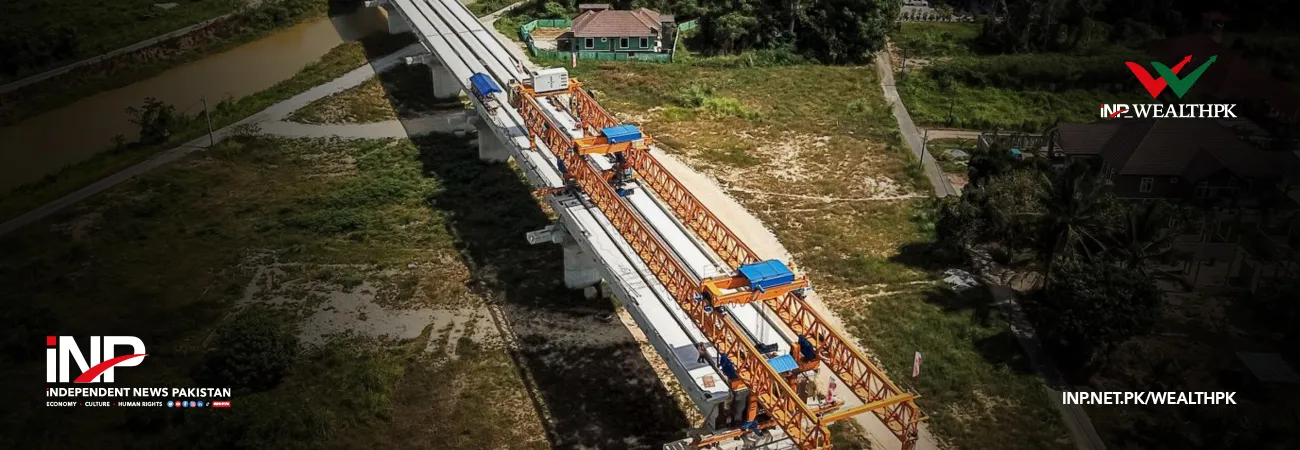INP-WealthPk
Ayesha Saba
The integration of the China-proposed Belt and Road Initiative (BRI) into global networks represents an opportunity for Pakistani industry to transform and thrive. Pakistan's pivotal position within BRI makes it a central player in the global push towards economic integration, stressed Dr Ghulam Samad, a senior trade economist with the Central Asia Regional Economic Cooperation Programme. Talking to WealthPK, he said during the past four decades, the Chinese economy had grown at an unprecedented pace, transforming from a predominantly agricultural economy to an industrial powerhouse. “China is shifting from labour-intensive to capital-intensive industries, freeing up 85 million jobs that will move to other countries.”
“As opposed to the first phase of China-Pakistan Economic Corridor, which was based on government-to-government cooperation, the second phase of CPEC is geared towards business-to-business and people-to-people contacts,” he explained. According to him, the special economic zones (SEZs) being initiated in the second phase of CPEC represent a strategic component of Pakistan’s industrial policy to enhance industrial competitiveness, create job opportunities, foster technology transfer, and ultimately contribute to the overall economic progress of the country,” he opined. Samad further said significant progress had been made in the development of various SEZs, including Rashakai and Allama Iqbal zones. “It is important to make the SEZs competitive so there are ample reasons for investors to prefer investing in them.”
“Pakistan needs rapid industrialisation, and for it to happen fast, development of SEZs is all the more important,” he suggested.Dr Tahir Mumtaz, Director of China Study Centre at COMSATS Islamabad, while talking to WealthPK said, “As central part of BRI, CPEC is a transformative project with long, medium and short-term plans. Pakistan has achieved a lot of progress during the first decade of the project.”
He said that the projects under CPEC would potentially allow for import substitution and export-led production, thus enabling Pakistan to tackle its perennial trade deficit. “One of the most crucial aspects of Pakistan's industrial growth is the development of its energy sector. BRI projects have introduced several energy initiatives, including coal-fired power plants, wind farms, and solar projects,” he said. “These have not only alleviated Pakistan's chronic energy shortages but also created a more conducive environment for industries to thrive. Reliable energy supply is vital for industrial processes, and BRI investments have addressed this need,” he maintained.
He said that in order to achieve sustainable economic growth, Pakistan must recognise and seize all new opportunities, especially those provided by regional and international development projects like the BRI. The Third Belt and Road Forum for International Cooperation was held in Beijing from October 17 to 18. Prime Minister Anwaarul Haq Kakar represented Pakistan. The forum focused on research and innovation, communication, science & technology, industry, agriculture, energy, tourism, people-to-people exchanges and other areas. PM Kakar attended the opening ceremony of the event and addressed the high-level forum titled “Connectivity in an Open Global Economy.”
Credit: INP-WealthPk













